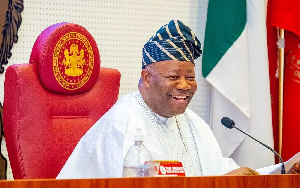There are no easy roads to the top, and Eberechi Eze’s rise from the cages of south London to England internationals has been chequered with adversity. Having signed a new long-term contract with Crystal Palace, he explains how football helped him find happiness both on and off the field.
For so many of football players and followers, football is more than a sport. It’s an identity. It’s how conversation are started at an awkwardly quiet party: ‘Well, who do you support then?’ It’s how we bond instantly with total strangers in the pub, it’s how we overcome language barriers abroad and it’s how we manage to decide our dislike for mutual friends without yet having got to know them.
It’s a thought that was at the forefront of Ebere Eze’s mind as he ran on to replace Marcus Rashford for his second England cap against Scotland on September 12, 2023. He knew how far he had come, and he knew how uncertain it was he would make it. But now, after making his debut in June, he could assume his new identity: Ebere Eze, England international.
FROM ARSENAL REJECT
It could have been so different. When he was barely a teenager, Eze was released by Arsenal and his future was in doubt. It hit hard. “It wasn’t easy,” he remembers. “I signed [for Arsenal] when I was eight or nine, and got released at 13. That was probably the hardest release because that was all I knew at the time.
“A big thing people probably don’t understand is that at that age that’s part of your identity. It’s like: ‘I’m Ebere who plays for Arsenal,’ and anywhere you go that’s how you referred to. That’s how you’re spoken about. So the moment you get released it’s like okay that’s a big part of me that’s just left.”
“I was playing cage football for a long time,” he says. “Even in academies whilst I was training, I would still go back to the cages and play with friends. That’s where football is most enjoyable, and it’s probably where I learned most of how I play as well. It’s a big part of me, definitely.
“Ball control, being able to run past players, handling the ball in tight spaces, being able to get knocked by bigger players and getting up. It’s literally doing what you can to be as effective as you can be in harsh circumstances. For sure, that’s built me and helped me become the player I am today.
“I’m grateful for where I grew up and the things I saw and experienced, because they have shaped me. We would play football every single day after school: just walk down the hill into a cage and put our bags down, put our jumpers down and everyone is just playing. It’s those moments that you don’t realise are your first bit of education as a footballer, so it’s hugely important.”
TO QUEENS PARK RAGERS
After his release from Arsenal, Eze bounced around a number of clubs before settling at Queens Park Rangers. It was here he spotted a possible new identity for himself. Rather than just enjoying his football as an escape, he could turn it into a career.
“I don’t think I understood what it meant to be professional until I was 16- or 17-years-old,” he admits. “It was when I started to see players progressing into the Under-21s and realising: ‘Oh, those are professionals as well and they are trying to get into the first-team’. Before that, honestly, it was just about enjoying football.
“That’s all I wanted to do all the time. I wanted to enjoy and to play and run past people. I just loved football so much. It wasn’t until that point that I thought: ‘OK, cool, there is actually something that can come from this.’”
A SECOND SETBACK
It was some education, and it helped Eze turn professional. But then, after a rapid rise at QPR and then at Palace, a second setback: an Achilles injury ruling him out for almost a year and costing him a first England call-up. It was a sobering moment.
“It was a weird day – I had never experienced a big injury like that before,” he says. “You see yourself get quite close [to England] and then dropping quite far away from it because of how long it takes to get back fit. .
“Initially, for sure, that was the driving force: ‘Listen, that’s the level I want to get back to’. But after a while when you can’t walk it’s like: ‘OK, I just want to walk, I just want to run’.” A footballer unable to play football. Another identity crisis.
“Mentally it’s probably the most challenging thing. Being able to play is something you miss so much when you’re injured. You don’t realise how big a part of your life it is. But again, I look back on it and I see that I have grown as a person, and not just as a football player – I know I have improved there – but more so as a person.
MESSAGE OF HOPE
“I can see myself in a different light now and I know that I wouldn’t be this person if it wasn’t for that experience.” Eze’s message is one of hope: once again, obstacles can be overcome with sheer hard work and dedication. However, his focus isn’t on himself.
As he sees it, success should be shared – but not for personal gain. It’s why, when making deliveries for local food banks, he declines to make a song and dance about his charity work.
“I think it’s better that way when no one realises what is going on,” he explains. “I’m not doing it because I want people to know, I’m doing it because that is what I felt convicted to do at the time. For my church we would deliver food to different houses and people in difficult situations.
“For me, I try to do that as something personal and something that is for myself – obviously if people find out they find out, and there is not really anything you can do.”
Eze’s compassion belies a selfless attitude that defines him as both a player and a person. If he can inspire the next generation, then that is a triumph in itself.
“My brothers and the people around me, we always speak about it and we understand that what we do now is not necessarily the most important,” he explains. “We think about inspiring people. If you can inspire people, you can help people to become the best version of themselves. That’s more important than any accolade or reward or whatever you receive yourself. That’s how I see my life [and] that’s how I see the position that I’m in, and I’m grateful to be able to do it.
“The people that are being inspired by the story, the people that are looking at their current situations and seeing: ‘OK, cool, this is someone that has gone through adversity and this is how to come out of it.’ I feel like that’s a huge thing. It’s less about myself and more about the people that are looking at the story and inspiring and motivating people to make something of themselves too.”
A NEW IDENTITY
It becomes clear listening to Eze that, through football, he has found an identity that allows him to feel free both on the field and off it. He is Ebere Eze, Premier League star. He is Ebere Eze, England international. But his focus is not turned inwards. Instead, it is aimed at enjoying every minute, and helping others to find their identity too.
“To be honest, every day I am always looking back,” he concludes. “I’m not looking back as in living in the past, but looking back just for gratitude and to understand that you’ve come so far. Experience today and enjoy it, don’t get caught up in things that are going on or become worried. It’s just about enjoying the present moment as much as possible, because of where you have come from.”
Sports News of Sunday, 3 December 2023
Source: thenationonlineng.net













